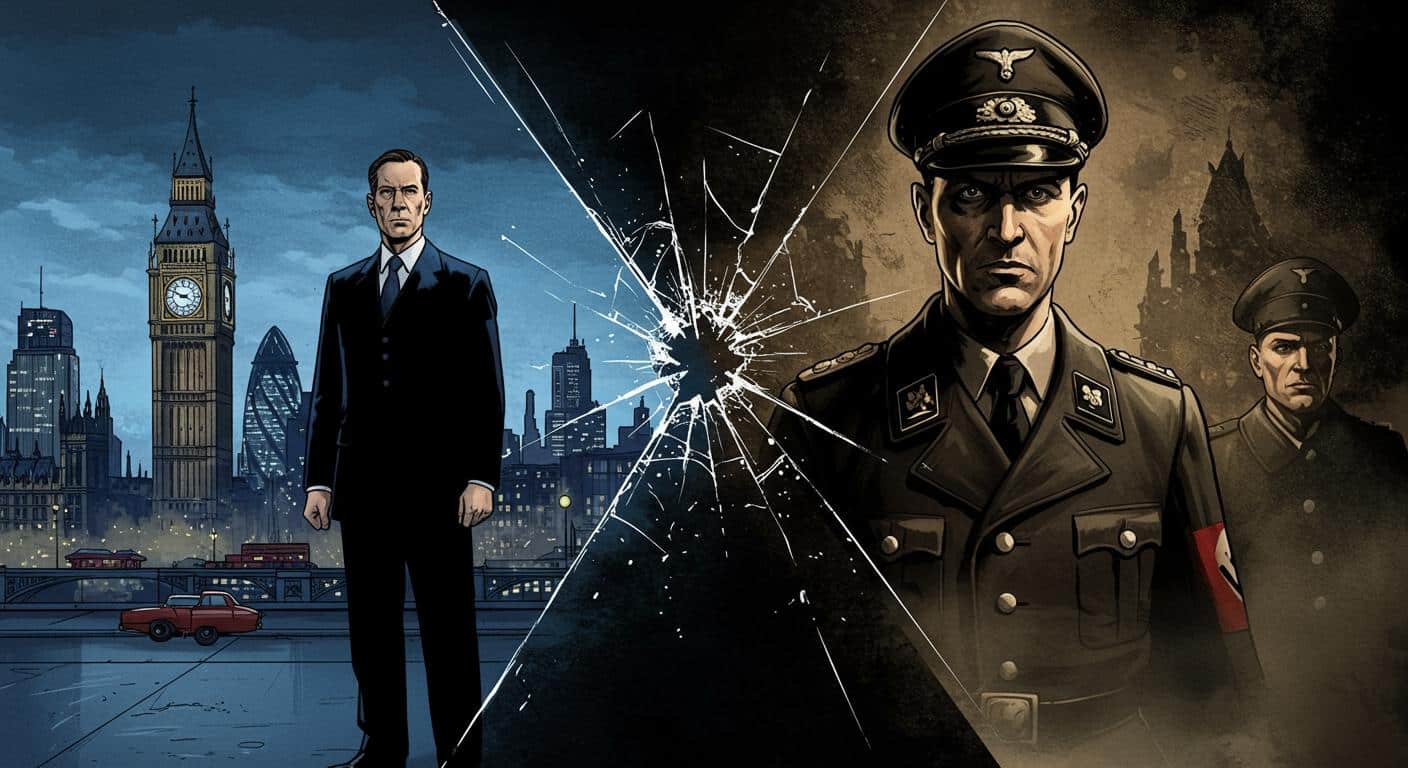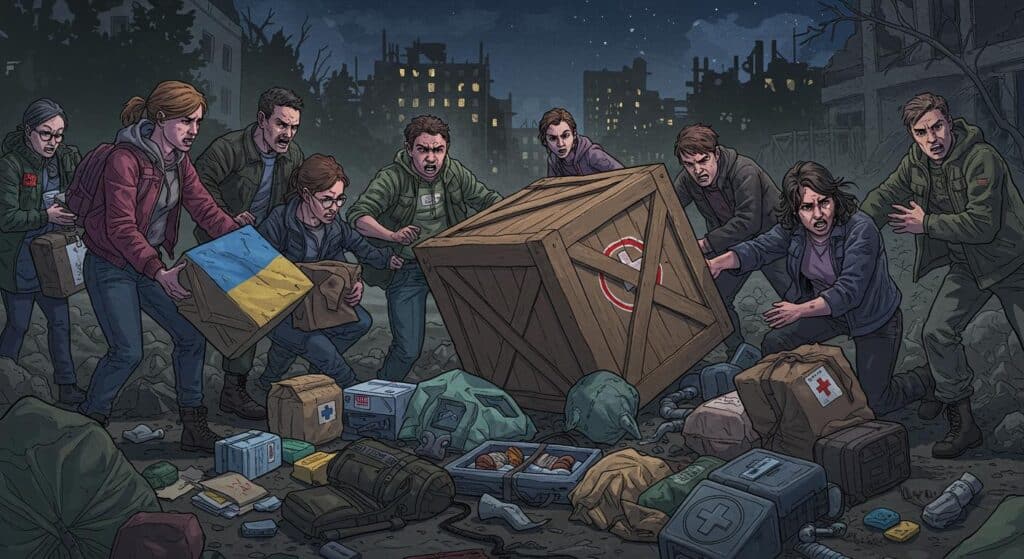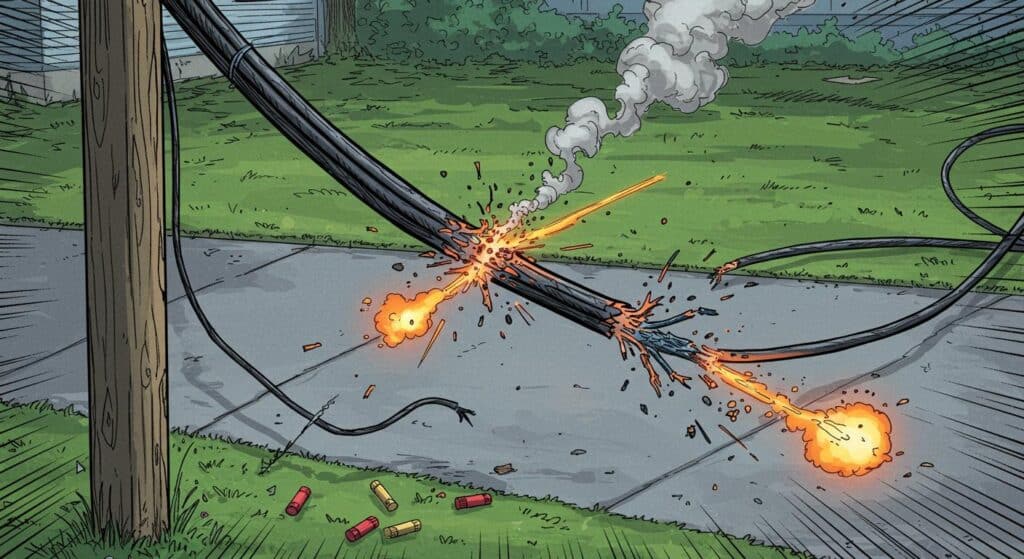Every so often, history delivers a detail so bizarre it feels handpicked to challenge the tidy narratives we like to maintain. The revelation about incoming MI6 chief Blaise Metreweli’s family tree lands squarely in that category—a discovery at once fascinating, unsettling, and, for Britain’s famously circumspect spy agency, undeniably awkward.
A Spy Chief and a Shadow in the Archive
Let’s start with the headlines, which the BBC News sums up with characteristic British understatement: Metreweli, soon to be the first female chief (“C”) in MI6’s 116-year history, has been found to be the granddaughter of Constantine Dobrowolski—a man described in German wartime archives as a leading Nazi informant in occupied Ukraine. The Daily Mail, credited with first surfacing this familial landmine, reportedly uncovered hundreds of pages of Freiburg archive documents revealing Dobrowolski’s infamous aliases: “The Butcher” and “Agent No 30.”
As detailed in both the BBC and Protothema, Dobrowolski defected from the Red Army and was appointed by the Nazis as chief informant in Chernihiv, Ukraine. The Mail’s document trove includes letters to Nazi superiors signed “Heil Hitler,” with admissions from Dobrowolski that he “personally” took part “in the extermination of the Jews.” Further reports cite those same archives for allegations of looting from Holocaust victims and witnessing atrocities dispassionately.
It’s the sort of spectral family connection you’d expect to find footnoted in a particularly dark history book, not attached to a modern intelligence CV.
MI6 Pushes Back—With Caveats
With reporters diligently cross-checking birth certificates and immigration documents, the Foreign Office—speaking for MI6—quickly issued a statement to make what one might call the agency’s official distance. According to the Gazette & Herald, a spokesperson clarified that Blaise Metreweli “neither knew nor met her paternal grandfather,” observing that her ancestry, like that of many with Eastern European roots, is “characterised by conflict and division” and only partially understood.
Backing this up, the BBC notes that Dobrowolski’s wife, Barbara, fled to Britain after the war with her infant son—Metreweli’s father—who later took the surname of his mother’s new husband, David Metreweli. Official documents at times still bore the Dobrowolski name, a genealogical wrinkle likely more interesting to archivists than to aspiring spy chiefs. Blaise Metreweli’s father went on to be a radiologist and a British Armed Forces veteran, and she herself was born in 1977. At no point, the record shows, did she cross paths with her infamous ancestor.
While the Foreign Office is keen to highlight this disconnection, there’s been a noticeable effort to cast this tangled heritage as a kind of asset rather than a liability. The official narrative, explained in BBC and Gazette & Herald reporting, is that a complex background has only sharpened Metreweli’s commitment to preventing modern conflict—a story perhaps tailored for press releases, but more palatable than fielding questions about 1940s war crimes.
Bloodlines and Backstories: How Much Family History Is Too Much?
It’s easy to see why this story leapt from archive boxes to banner headlines. First female MI6 chief is already a potent news hook; add a Nazi informant grandfather, and it practically writes itself as a speculative thriller. Yet the significance of ancestral skeletons is never as straightforward as the headline grab implies.
The facts remain, as specified by Protothema and the BBC, that Metreweli had no contact or involvement with Dobrowolski. Her career—spanning operational work in the Middle East and Europe, current leadership in technology and innovation at MI6, and a Cambridge degree—bears no material connection to her grandfather’s actions. If anything, it’s a testament to a life that, by all available documentation, has been spent in public service and far removed from inherited villainy.
Still, it begs the perennial question for public figures in the digital age: Do ancestors’ crimes, unearthed by diligent researchers, have a bearing on one’s own CV? Would the press have pored through the Freiburg archives had Metreweli been the fourth or fifth woman in the chair, rather than the first? And how many people, handing in family trees for vetting, could predict what will be found two or three generations back—especially amongst those “characterised by conflict and division?”
Reflections From the Filing Cabinet
What emerges is an episode that’s as much about the persistence of history as it is about the future leadership of MI6. Metreweli’s resume—on paper, impeccable; in the margins, annotated by events so distant they seem to belong to another world. In a detail highlighted by the BBC, even her name is an artifact of postwar scrambling: official records sometimes list her father with the very surname the agency is hurrying to disclaim.
If there’s a final irony, it’s that British intelligence, an institution built on unearthing secrets, has been forced into the rather defensive role of family historian. Their latest chief stands poised to meet twenty-first-century threats, trailed by the kinds of awkward footnotes that only the passage of time—and a persistent archivist—can deliver.
Given the tangled history chronicled by BBC and confirmed across European archive papers, perhaps the real lesson is that public lives are forever at the mercy of old paperwork and the stray, sometimes unsettling, details those boxes contain. Does it say anything meaningful about the present? Or is it just another oddity in the endless shuffle of historical files—one that makes you pause, blink, and, perhaps, reconsider the stories we tell about where we come from?







